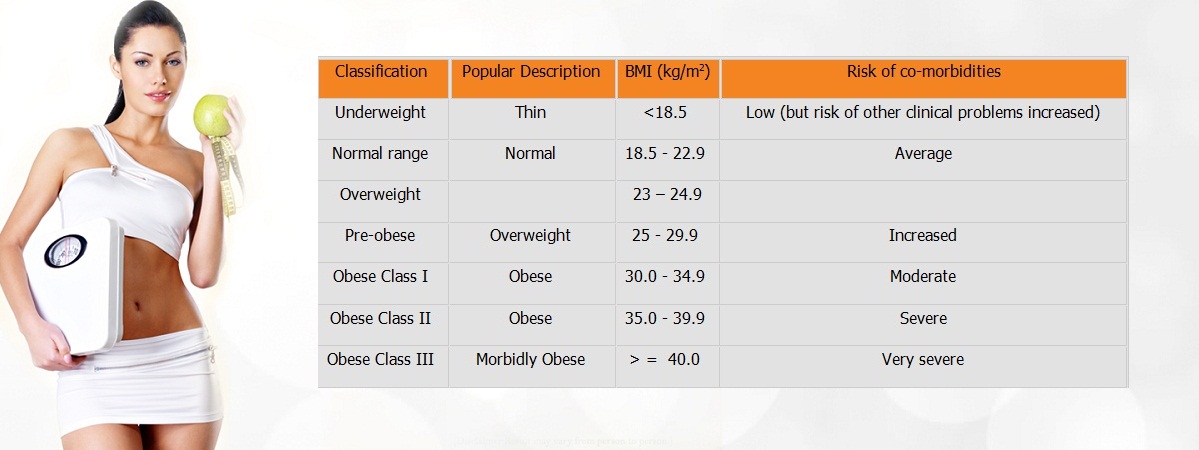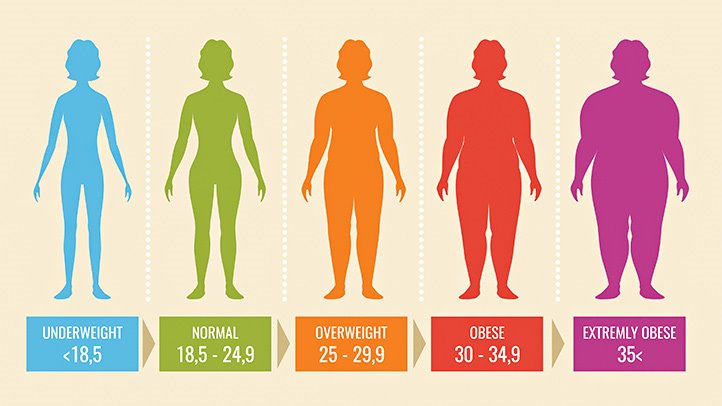Enquiry Form
Description
BMI (Body Mass Index) is a measurement of body fat based on height and weight that applies to both men and women between the ages of 18 and 65 years.
BMI or Body Mass Index is a globally acknowledged scientific method of measuring obesity. Recommended by the WHO (World Health Organization) it is a simple index of weight-for-height, which is used to classify underweight, normal, overweight and obese adults along with their level of associated health risks.
BMI can be used to indicate if you are overweight, obese, underweight or normal. A healthy BMI score is between 20 and 25. A score below 20 indicates that you may be underweight; a value above 25 indicates that you may be overweight.
You can calculate your BMI by using our BMI Calculator below or by using the BMI Formula.
It is calculated by dividing the weight in kilograms by the square of an individuals height in meters.
Please remember, that this is only one of many possible ways to assess your weight. If you have any concerns about your weight, please discuss them with us, unlike this BMI calculator to address your specific individual situation.
Frequently asked questions
Waist circumference is the distance around your natural waist (at the iliac crest or hip bone). If your BMI is between 25-35 kg/m2, your goal for waist circumference is less than 40 inches if youre a man and less than 35 inches if youre a woman.
BMI is an indicator of the amount of body fat for most people. It is used as a screening tool to identify whether an adult is at a healthy weight in kilograms is divided by height in meters squared (kg/m2). In studies by the National Center for Health Statistics, BMI values less than 18.5 kg/m are considered underweight. BMI values from 18.5 kg/m to 24.9 kg/m are healthy. Overweight is defined as a body mass index of 25.0 to less than 30.0 kg/m. People with BMIs in this range have an increased risk of type 2 diabetes, hypertension, and cardiovascular disease. Obesity is defined as a BMI of 30.0 kg/m or greater. People with BMIs of 30 kg/m or more are at higher risk of cardiovascular diseases. Extreme obesity is defined as a BMI of 40 kg/m or greater.Some well-trained people with dense muscle mass may have a high BMI score but very little body fat. For them, the waist circumference, the skinfold thickness or more direct methods of measuring body fat may be more useful measures than BMI.





